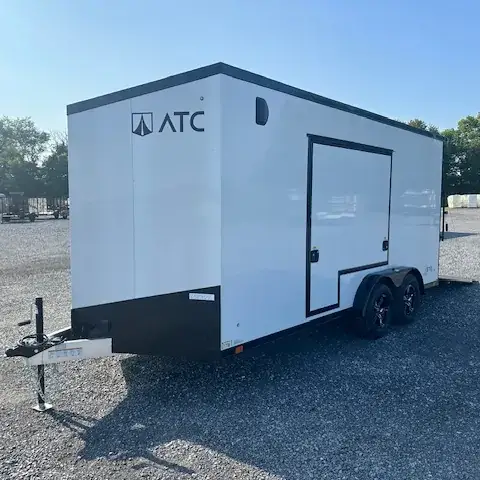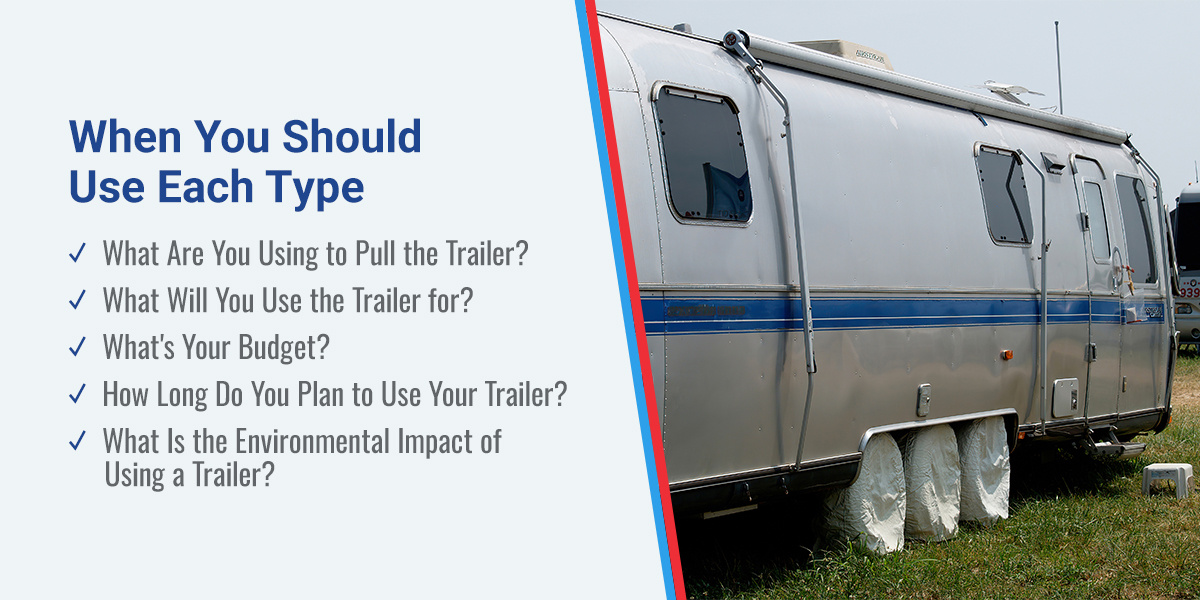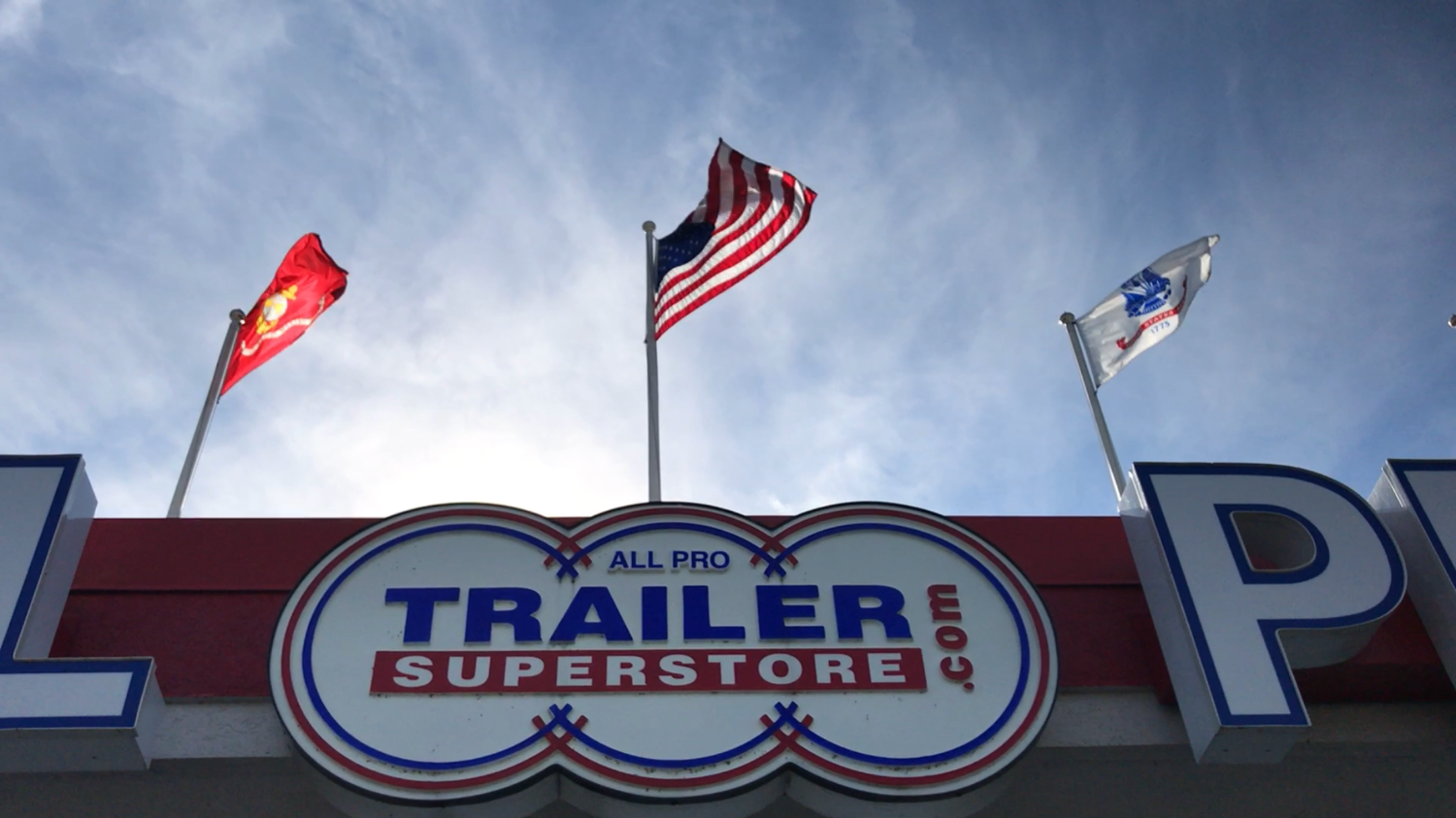Aluminum or Steel Trailer? Learn About the Pros and Cons of Each Trailer Type
Sep 25, 2014Last Updated on October 28, 2024 by Jon Brigham
Last Updated on October 28, 2024 by allprotrailersuperstore
When you’re in the market for a car trailer, it can be difficult to differentiate between aluminum and steel, along with the pros of cons of each if you’re unfamiliar with trailers. Learn about the benefits of each in order to decide which is best suited for your needs with this list of all the necessary facts about both metals below:
Table of Contents
- The Pros and Cons of Steel Trailers
- The Pros and Cons of Aluminum Trailers
- When You Should Use Each Type
- Buy an Aluminum or Steel Trailer from Trailer Superstore
The Pros and Cons of Steel Trailers
Historically speaking, steel was the primary metal used to make trailers when they were first introduced. However, steel can rust over a couple of years which made some people turn to aluminum when it eventually came onto the market in the 1970s.
Pros:
- Steel trailers are generally less expensive: On average, steel trailers tend to be less expensive than aluminum trailers – about 20 percent less. This is just the average and exceptions do occur.
- Steel is stronger than aluminum: There’s a reason why cars, bridges and boats are built with steel rather than aluminum – steel is much stronger than aluminum. It’s up to 66% stronger in fact. If you’re looking for strength alone, you might want to look at a steel trailer. Steel trailers can also take on a lot of stress while being driven long distances on bumpy roads and in inclement weather.
- Steel is considered easier to repair than aluminum, making steel typically easier and cheaper to fix.
Cons:
- Steel rusts easily: there are techniques used to minimize the rust of steel. Some companies coat the steel with a protective layer or zinc to lessen the corrosion. Additionally, you can improve to the protection by adding a coat of paint.
The Pros and Cons of Aluminum Trailers
Pros:
- Aluminum does not rust or corrode like steel can. It weighs less and can be pulled by a vehicle easily for this reason.
- Aluminum is lightweight: Because of the lightweight of aluminum, it can carry heavy loads. It has a much higher payload capacity than steel, which means that the trailer can hold more items without reaching the maximum amount of weight.
- Better gas mileage: Many people find that they had better gas mileage when hauling an aluminum trailer as opposed to a steel trailer.
Cons:
- Aluminum trailers need to be doused with acid every couple of years to renew its exterior and clean up the surface as wear and tear can make these trailers look beaten down. You must also lubricate the hinges and cam latches with aluminum trailers.
When You Should Use Each Type
Both aluminum and steel are good options. When you’re considering the benefits of a steel vs. aluminum trailer, ask yourself the following questions to determine what the most important features are:
1. What Are You Using to Pull the Trailer?
If your towing vehicle is old, small or has a low towing capacity, then getting an aluminum trailer is the best choice. Pair a steel trailer with a strong vehicle like a full-sized pickup truck designed to haul heavy loads, and if you have a compact vehicle with a light towing capacity, go with a smaller aluminum trailer.
2. What Will You Use the Trailer for?
If you need to tow a high weight capacity or if your towing vehicle has a low maximum capacity, aluminum would be the best choice. Steel is heavier and takes up more of the towing vehicle’s capacity. With an aluminum trailer, most of the work will go into hauling whatever you load.
3. What’s Your Budget?
If money is your primary concern, steel is less expensive than aluminum. The upfront costs of a steel trailer are less because of the manufacturing process. However, you should also consider that a steel trailer will likely have higher maintenance costs.
When you need to restore the exterior of an aluminum trailer, you can give it an acid wash. To maintain a steel trailer, you will need to strip the zinc layer, apply a fresh zinc layer and repaint the exterior. The upkeep is a more complex and costlier process for steel.
4. How Long Do You Plan to Use Your Trailer?
If you go with steel, you will need to treat the exterior every few years to keep away the rust and corrosion. Aluminum is naturally resistant to rust, making it the best long-term option. If you live somewhere with extreme summer or winter temperatures or where the wind blows a lot of dust or salt, aluminum is also the preferable option.
Since aluminum is lighter than steel, an aluminum trailer places less strain on your towing vehicle. Over an extended period of time, this means that your towing vehicle will endure longer if you choose aluminum.
5. What Is the Environmental Impact of Using a Trailer?
If you’re concerned about making an eco-friendly purchase, aluminum is a good choice. Aluminum products are sustainable and entirely recyclable, requiring significantly less energy than steel to recycle.
Buy an Aluminum or Steel Trailer from Trailer Superstore

We’ve Got the Right Trailer for Your Needs and Budget
Browse Available TrailersWhether you are choosing between aluminum and steel, trailers can come in all different shapes and sizes depending on your needs. Both types of trailers can be a wonderful investment if you choose wisely and learn about all your options. Shop for the ideal trailer at our online store, or contact us to learn more about our products.



